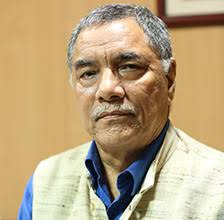
Cancer Care Reform Hopes Rise as Budget 2025 Nears
With Budget 2025 around the corner, the cancer care sector stands poised for transformative reforms aimed at ensuring accessibility, affordability, and quality for all, according to Mr D.S. Negi, CEO of Rajiv Gandhi Cancer Institute & Research Centre (RGCIRC).
A notable highlight of the previous budget was the inclusion of the HPV vaccine, a critical tool in preventing cervical cancer, in the National Immunization Program. This move aims to protect future generations from one of the most preventable cancers. "Including these vaccines in the National Immunization Program can ensure every child receives them automatically, much like the polio vaccine. With door-to-door services and widespread access, this initiative could drastically reduce the incidence of cervical cancer," Negi stated.
India has also achieved groundbreaking milestones in cancer care. The launch of the country’s first indigenously developed CAR T-cell therapy under the ‘Make in India’ initiative marked a significant breakthrough. Additionally, RGCIRC recently performed India’s first telesurgery in cancer care, setting a benchmark for remote oncology treatment.
To sustain and expand these successes, Negi emphasized the need for prioritizing digital health solutions in Budget 2025. Innovations like telesurgery, electronic health records (EHRs), and AI-driven diagnostic tools can revolutionize healthcare delivery. Furthermore, he called for enhancing nationwide cancer screening programs and increasing access to cutting-edge treatments, such as immunotherapy and personalized medicine.
A key recommendation is increasing healthcare spending to 2.5% of GDP. Negi also highlighted the importance of supporting cancer survivors through rehabilitation, mental health services, and survivorship programs to improve their quality of life.
“High import duties on medical equipment, reaching up to 36%, significantly increase treatment costs, particularly for mid-sized operators and smaller cities. The Budget should provide relief from these duties to enable more hospitals to acquire high-end equipment, making treatments more affordable and accessible,” he added.
Negi underscored the need to bolster primary healthcare centers, enabling tertiary hospitals to focus on specialized treatments. Equipping government hospitals with advanced infrastructure is essential to tackle the growing cancer burden. Additionally, targeted policies addressing various cancer types, including rare cancers, are crucial for comprehensive care.
“By addressing these priorities, Budget 2025 can lead the way to a future where cancer care is accessible, innovative, and largely preventable,” Negi concluded.